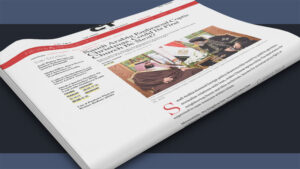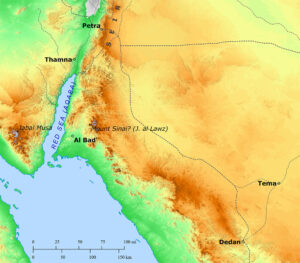Living Passages in The New York Times!
Saudi Arabia Wants Tourists. It Didn’t Expect Christians.
In a fluid new age for the conservative Islamic kingdom, evangelicals have become some of its most enthusiastic visitors.
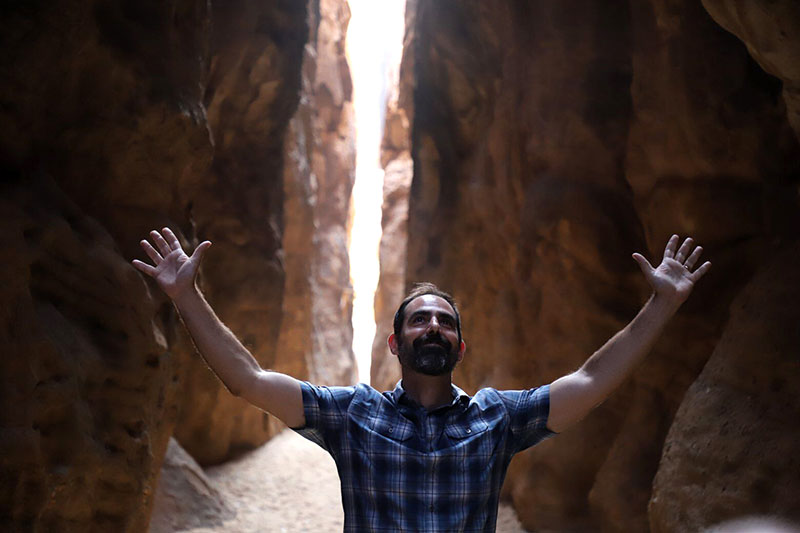
The caravan of five Toyota Land Cruisers raced across Saudi Arabia’s rocky desert, weaving onto a highway so new it was not on the map. At the cleft of sea that splits the kingdom from Egypt, they stopped on a barren beach. Fifteen tourists spilled out and gathered around Joel Richardson, a Kansas preacher.
As the sun dipped below the mountains of the Sinai Peninsula — hazy across the water in Egypt — Mr. Richardson asked the group to imagine standing on the other side at the moment of the biblical Exodus, fleeing from Pharaoh’s army with Moses, when the sea ripped in half.
He opened a Bible, donned his glasses and began to recite. “Who among the gods is like you, oh Lord?” he said. “Who is like you, majestic in holiness, awesome in glory, working wonders?”
Two Florida retirees, a Colorado pharmacist, an Idaho bookkeeper and an Israeli archaeologist listened intently.
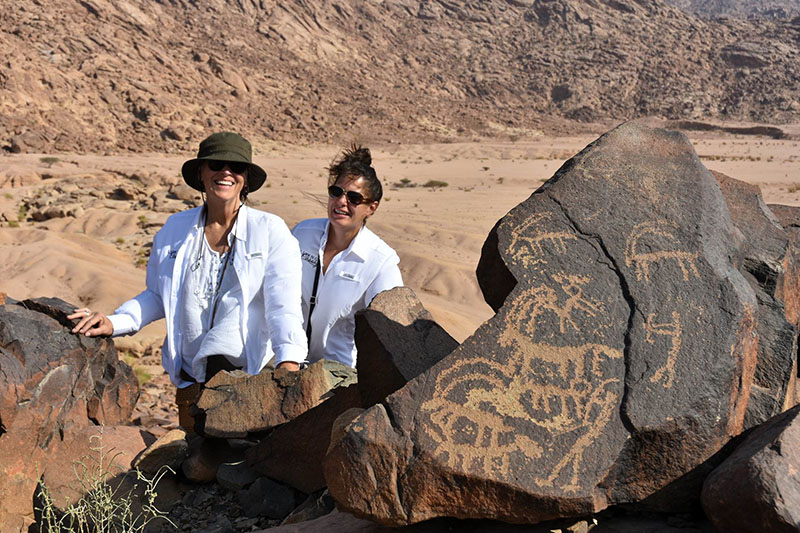
These were not the visitors Saudi officials expected when they opened the country’s borders to leisure tourists in 2019, seeking to diversify the oil-dependent economy and present a new face to the world. First would come the adventurers, they thought — seasoned travelers searching for an unusual destination — and then the luxury market, with yacht owners flocking to resorts that the government is building on the Red Sea coast. No one in the conservative Islamic kingdom had planned for the Christians.
Yet Christians of many stripes — including Baptists, Mennonites and others who call themselves “children of God” — were among the first people to use the new Saudi tourist visas. Since then, they have grown steadily in numbers, drawn by word of mouth and viral YouTube videos arguing that Saudi Arabia, not Egypt, is the site of Mount Sinai, the peak where Jewish and Christian Scriptures describe God revealing the Ten Commandments.
Mainstream biblical scholars vigorously dispute this. But that does little to dampen the pilgrims’ enthusiasm as they embark on what is, for many of them, the trip of a lifetime, hunting for evidence that they think could prove the truth of the Exodus.
“It makes something tangible that you have believed in your whole life,” said Kris Gibson, 53, the Idaho bookkeeper on Mr. Richardson’s trip, who had never traveled beyond the United States and Mexico before she boarded a plane in February to Saudi Arabia.
For decades, nearly all of the tourists who entered Saudi Arabia were pilgrims going to Mecca, the birthplace of Islam. Openly practicing other religions was effectively forbidden. Synthetic Christmas trees were smuggled in and sold as contraband. People accused of “witchcraft” were executed.
The country’s religious dogmatism began to ease early in the 2000s, when tens of thousands of Saudis studied in the United States. Then, in 2015, a new king elevated his 29-year-old son, Prince Mohammed bin Salman, into the line of succession.
Prince Mohammed declared that he would turn the kingdom into a global business hub. He unleashed a cascade of social changes, stripping religious police of their powers, loosening dress codes and lifting a ban on women’s driving.
He also oversaw an increase in political repression, silencing almost every Saudi voice that might challenge him. In 2018, Saudi agents in Istanbul murdered and dismembered the Washington Post columnist Jamal Khashoggi, a critical exile. An American intelligence assessment determined that the prince probably ordered the killing, a charge he denied.
Since then, Prince Mohammed has defied attempts to isolate him, deploying Saudi Arabia’s oil wealth in new ways to cement the country’s influence, including this month’s surprise deal between a Saudi-backed golf league and the PGA Tour.
As Saudi Arabia traverses this fluid new age, once-unthinkable events have become commonplace, giving daily life the texture of a surreal dream.
Few Saudis would dare to speak of full religious freedom; atheists — and even Muslims who question the tenets of Islam — can face imprisonment. But religious taboos are shifting rapidly. Buddhist monks attended an interfaith gathering in the kingdom last year, and Jewish visitors recently planted date palm trees in Medina, Islam’s second holiest city. An American-Israeli man turned up in the capital, Riyadh, with a website proclaiming himself “chief rabbi of Saudi Arabia.”
The kingdom is changing so fast that people are often unsure what has official approval and what is an accident. Government entities did not respond to requests for comment about Christian tours. Some Saudis privately expressed bemusement, though, and expanding tourism is a priority as the country diversifies its economy.
There is also a more subtle incentive. Saudis have long been portrayed in North America and Europe through tropes that brand them as backward and barbaric. They view tourism as a way to redefine the narrative and showcase their culture: its hospitality, its generosity, its spiced coffee and deep-fried sweets.
“When you think of Saudi Arabia from the States, you certainly don’t think of this,” said Ms. Gibson, strolling through a canyon filled with palm trees.
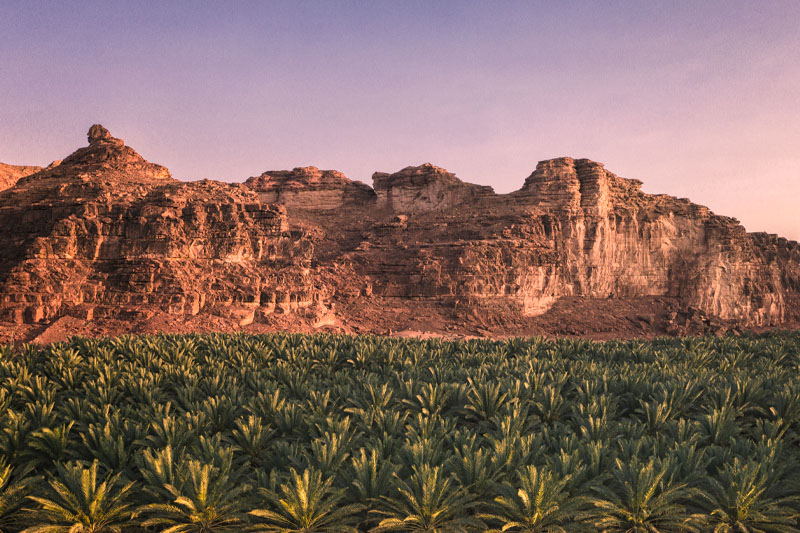
‘How Beautiful’
When Ms. Gibson told a friend she was going to Saudi Arabia, he called her crazy. She worried about offending Saudis — wearing the wrong thing, eating with the wrong hand — but once she arrived, no one seemed to care.
“I’m just absolutely shocked at how beautiful it is,” she said. “Because, you know, in my head I’m thinking, nothing but sand.”
Israel and Egypt have local Christian populations and long ago welcomed Christian travelers, drawing millions of people a year, many of them American evangelicals. Saudi Arabia is a nascent market. But several tour companies now offer packages geared toward Christians.
Like most similar journeys, Mr. Richardson’s tour — costing $5,199 per person — covered an area that Prince Mohammed chose for a science fiction-inspired mega-project, Neom, where he plans to build a linear metropolis composed entirely of two parallel skyscrapers.
Neom’s planners promise to preserve archaeological sites. Still, some Christian tourists worry.
“I wanted to see it in its pristine nature,” said Michael Marks, 52, the pharmacist from Colorado, who accelerated his plan to visit because of the project.
Like many Christian tourists, Mr. Marks became interested in the kingdom through the story of Ron Wyatt, an American nurse who popularized the idea that Saudi Arabia was the location of Mount Sinai.
Biblical archaeologists typically place Mount Sinai in Egypt, although there are other theories. A minority points to writings by the Roman historian Flavius Josephus suggesting that Jebel al-Lawz, a mountain in northwestern Saudi Arabia, is the site. There is also local lore that Moses spent time in the area. “No historical or archaeological evidence support these stories,” Saudi archaeologists wrote in a 2002 paper.
In the 1980s, Mr. Wyatt smuggled himself into Saudi Arabia and was arrested for entering illegally. He made a series of dubious claims, including that he had discovered the remains of ancient Egyptian chariots under the Red Sea.
Nevertheless, his ideas — initially on the fringe of evangelical beliefs — spread. Several years ago, Ryan Mauro, a self-described security analyst and Fox News commentator, narrated a popular YouTube video, “Finding the Mountain of Moses,” in which he said: “The Saudis have been hiding the evidence of the Exodus.”
Such conspiratorial assertions are often coupled with Islamophobia, but Saudi officials appear to see little conflict in courting conservative American Christians. For one, they are relatively inured to prejudice against Muslims; declarations by Donald J. Trump, like “I think Islam hates us,” did not dent his warm ties with Prince Mohammed when he was president.
But also, links to these groups offer a new source of soft power, coveted as an alternative way of connecting to Americans even when formal U.S.-Saudi ties are rocky. In 2018, weeks after Mr. Khashoggi’s murder, the prince hosted a delegation of American evangelical leaders in Riyadh.
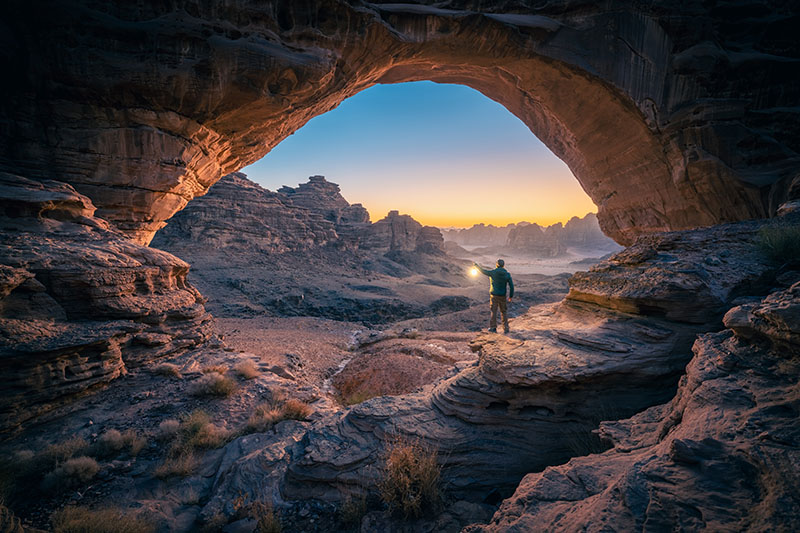
Evidence in the Desert
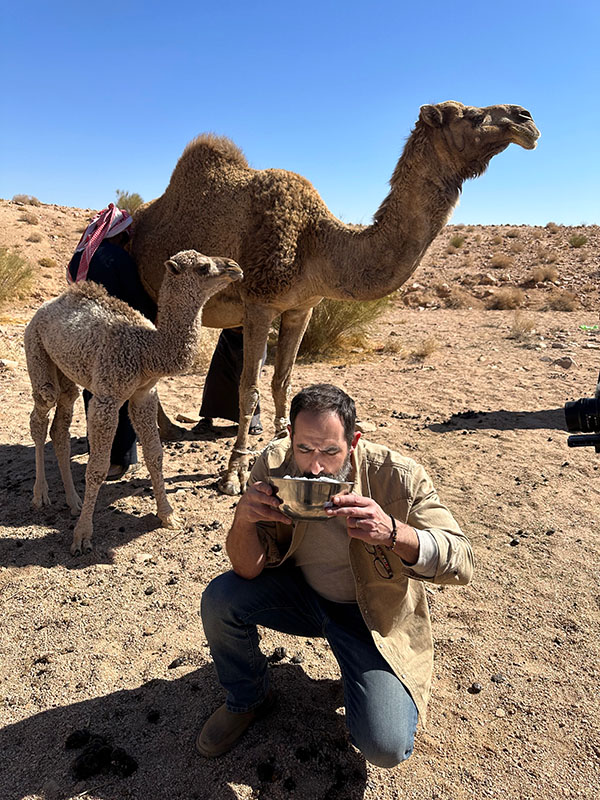
Mr. Richardson led his first tour to the kingdom in 2019, when the tourist visas were first available. A bearded man with a dry sense of humor, he was raised nominally Catholic in Massachusetts. As a teenager, he was a “very successful hedonist,” he joked.
But in the early 1990s, he came across a tent revival meeting in Tennessee and became an evangelical. “The Holy Spirit just spoke to me and said, ‘Your entire life is just a complete lie,’” he said.
He became fascinated by end-times prophesies, and in two books published more than a decade ago, argued that the Antichrist will be Muslim, describing Islam as a “totalitarian ideology” with “satanic origins.”
Asked how he reconciles his writing with what he calls a love of the Middle East, he said his perspective has changed, describing himself as a “conservative libertarian” who now has more of a live-and-let-live attitude.
On one of their last days in the kingdom, he took the tourists to a Bedouin camp, where their hosts milked a camel, pouring the frothy liquid from a silver bowl into cups for them to drink. Inside a tent lined with burgundy carpets, they dipped dates into fresh goat butter and feasted on meat and rice piled on platters the size of chandeliers. “This is such a privilege, that we get to be at the forefront of all this,” he said, praising the cultural exchange.
That pleasure alone is not what brings him to the kingdom; nor is profit from the tours, which are costly in a country where tourism is still new. Like many of the tourists, he is driven by an urge to uncover proof of the Bible’s stories, to walk where he believes they happened. The scenes of the Exodus fill him with awe. Finding signs that it occurred “would be the single greatest sacred biblical step forward in the past couple of thousand years,” he said.
“In my opinion,” he said, “all the evidence is sitting right out there in the desert.”
As they planned their journey, Luis Torres, 54, and his wife, Elinette Ramirez, 55, wanted to mark the occasion. They printed shirts with an image of a mountain crowned in flames with the GPS coordinates of Jebel al-Lawz.
To get there, the group drove for hours and hiked through a golden-brown canyon. “I want to give everyone time to reflect and pray,” Mr. Richardson said.
As a child, Ms. Ramirez had struggled to connect to the Bible’s stories. Now, she and her husband had traveled all the way from Puerto Rico to see the peak they believed was the mountain of God.
The sun beamed, sending rays floating into the valley, as they lifted their palms to the sky. “Hallelujah! Christ is coming!” they sang. “The trumpet will sound soon and the heavens will open up.”
When the time came to leave, Ms. Gibson lingered. She swayed as she gazed at the valley, wrapped in thoughts of the divine.
“All the majesty,” she said, her cheeks wet with tears. “I just got overwhelmed.”
The post Saudi Arabia Wants Tourists. It Didn’t Expect Christians. appeared first on New York Times.
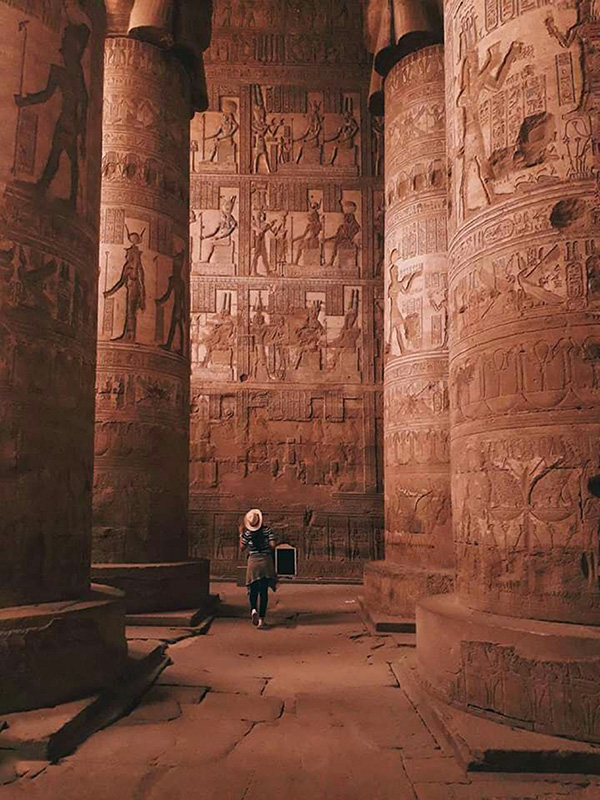
Are you ready to REALLY start learning?
FEBRUARY 2024
Exclusive yacht to the beginnings of the HEBREW language and people.
Saudi Arabia, Jordan, Egypt & Israel. In the beginning, was The Word.
Join Joel Richardson, Eli Shukron & Robert Cornuke on this Exodus Adventure.


